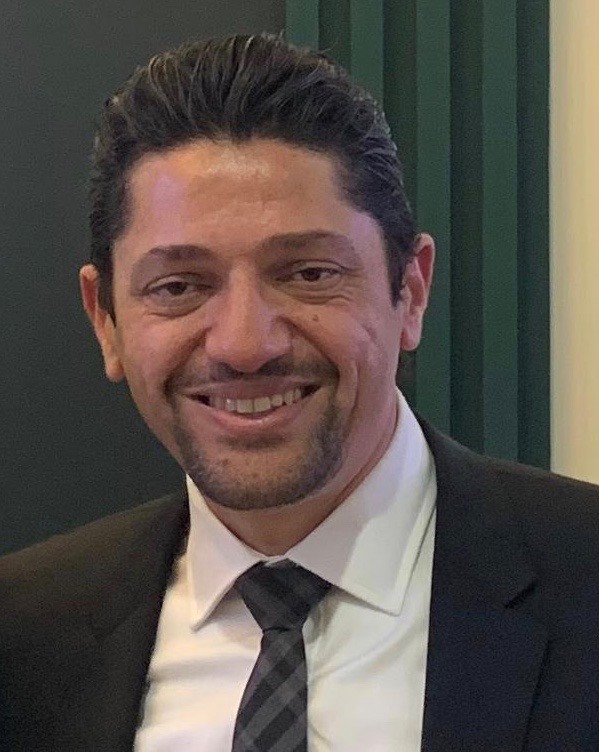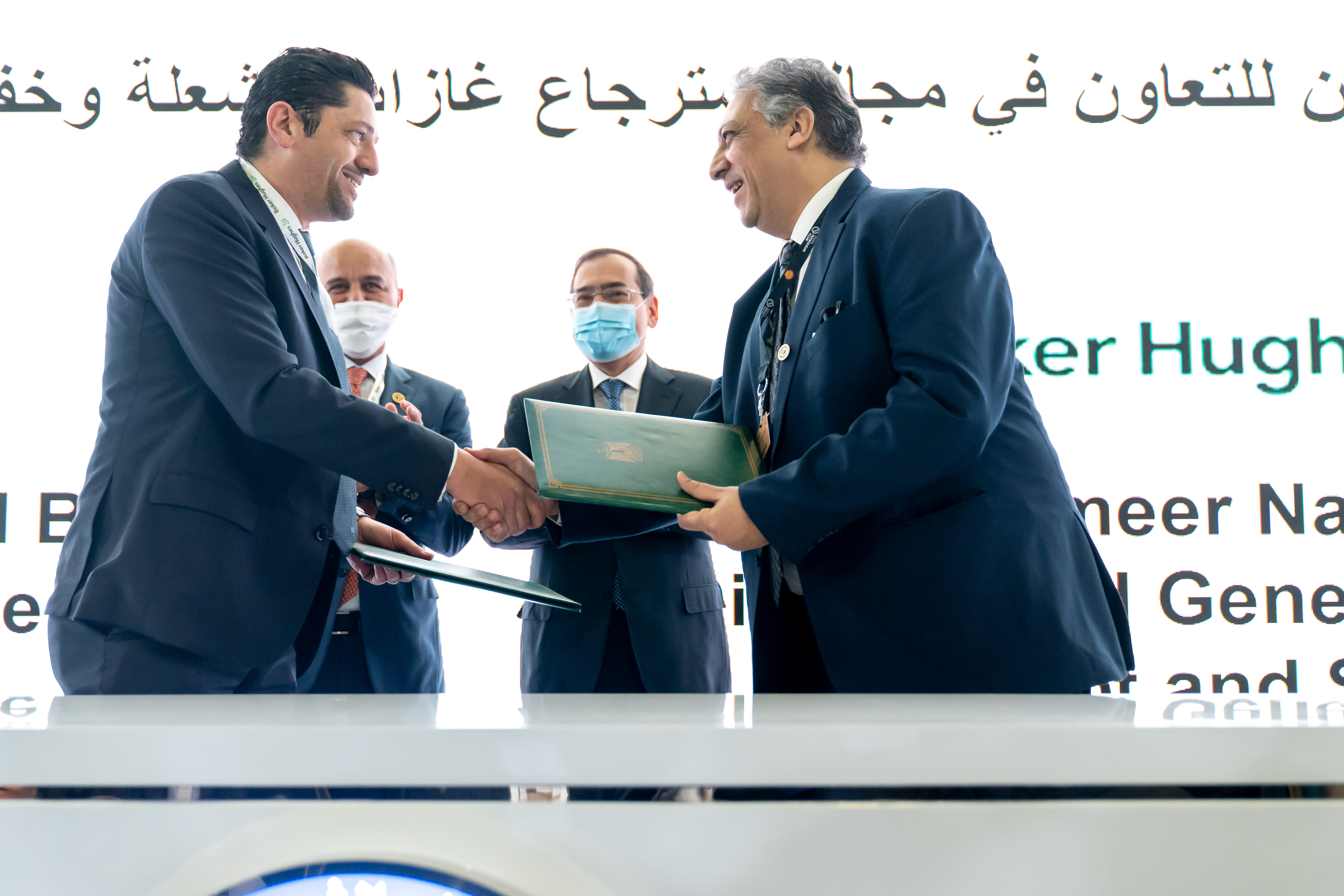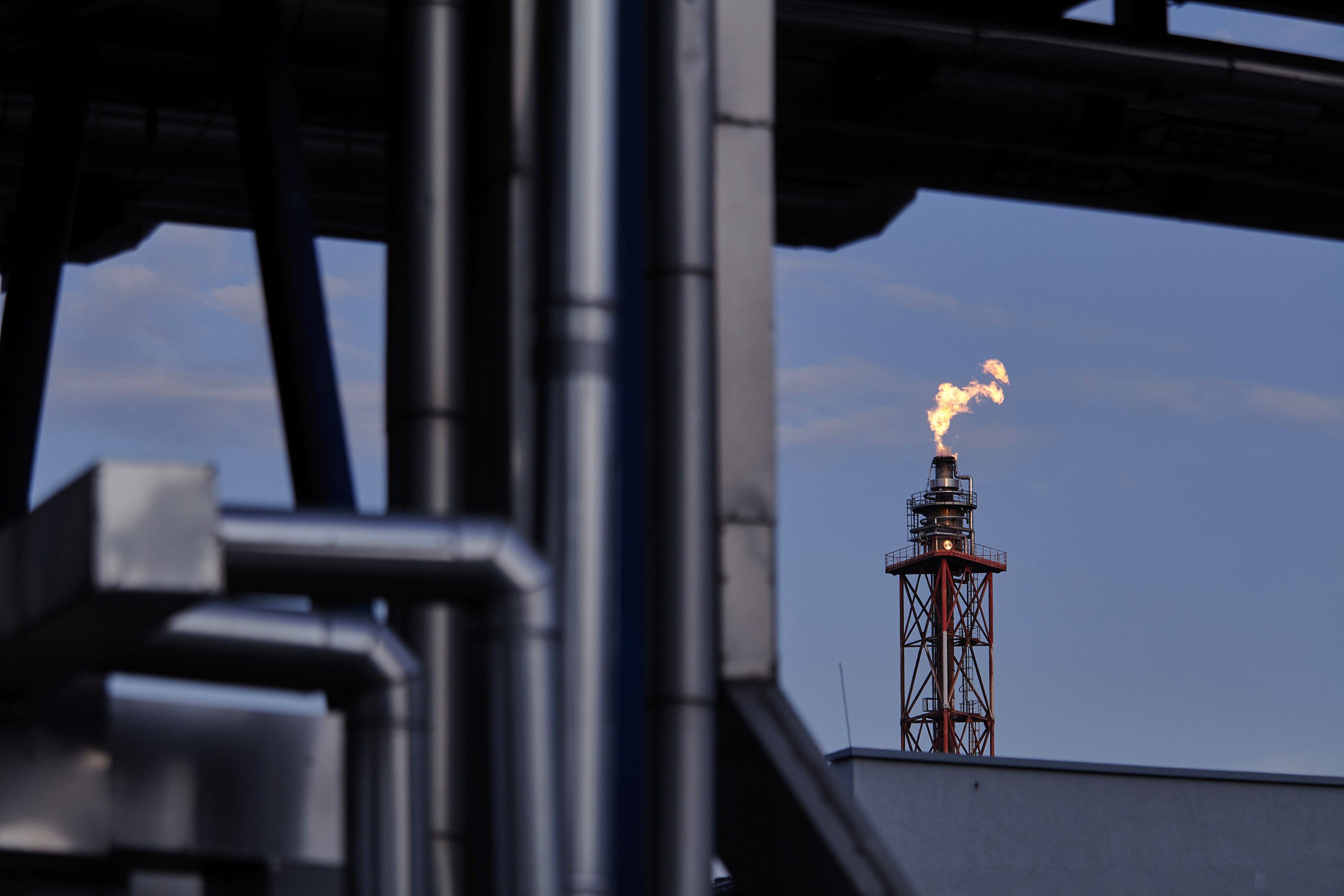Energy producing countries like Egypt are tackling energy transition hurdles with technology to help deliver net-zero results.
“We didn’t sign an MoU only because we have good intentions,” says straight-talking Tameer Nasser, Baker Hughes’ COP27 Program Leader in Egypt. “We signed an MoU with Egypt General Petroleum Corporation (EGPC) early this year as the first step to drive a flare recovery initiative and support emissions reduction across the country’s upstream and downstream oil operations, because we know what we are doing, and we have the capability to deliver.”

Today, delivery has begun with the recent signing of a contract for deployment of Baker Hughes’ flare.IQ technology at the state-owned APC Refinery in Alexandria, which was chosen because of its proximity to residential areas and the need to optimize its operations. Alexandria is a very densely populated city, and the refinery is in a residential neighborhood. Methane reduction in that area is important to help improve the local environment for residents.
This first downstream deployment in Egypt for flare.IQ will be used as a case study for how the petrochemical industry is supporting the Egyptian Ministry of Petroleum and Mineral Resources in its commitment to the Global Methane Pledge. In June this year, Egypt joined the Pledge, declaring its intention to reduce methane emissions from flaring by the oil and gas sector to less than half of 2015 levels.
“We’ve been working with the Government of Egypt for the past year-and-a-half on energy transition initiatives, and part of that is emissions management,” says Nasser who leads a global team of experts dedicated to support Egypt on a short-term journey to COP27 — to be held in the city of Sharm El-Sheikh on the Red Sea coast in November this year— and the long-term journey to carbon neutrality.

The company first held a series of meetings with ministers to “assess where the pain points are”, says Nasser. One of the key findings of these meetings is that Egypt flares approximately 220 million standard cubic feet (scf) of gas each day, as shown by satellite mapping. That represents a financial loss to Egypt and its energy-industry partners, and a prospect for recovery and use of the flared gas.
“Our objective is to recover as much as we can —we have the compression technology to do that — but you can’t recover what you do not measure. Once flare.IQ is installed, APC will have an accurate measurement of the gas flared, and we can start to assess the value of recovery.”
Fine tuning flaring
Taking a step back from the flames: flaring is a safety measure used during gas production at the well, and by refineries to burn excess hydrocarbons — predominantly in the form of methane and CO2, that cannot be directly recovered — in combination with steam. Burning the gas, even though it produces CO2, is considered a more environmentally sound process than releasing methane into the atmosphere. Methane is one of the most harmful forms of emissions — approximately 80 times more potent than carbon dioxide over a 20-year periodSource: Intergovernmental Panel on Climate Change, Sixth Assessment Report (2021) https://www.ipcc.ch/report/ar6/wg1/downloads/report/IPCC_AR6_WGI_Chapte…;
However, combustion during flaring can be incomplete, resulting in methane emissions despite the flaring precaution, and can use more steam than necessary — which is a cost to the refinery.
An increasing number of jurisdictions now require monitoring of flare emissions, and are imposing financial penalties on high emitters, while also requiring validation of the accuracy of flare-measurement devices, which are typically installed at the point of flaring — the tip of a tall pipe or chimney-like structure. flare.IQ allows remote verification of flow meters, which eliminates the costs and dangers associated with getting technicians up on scaffolding to do the job.
“Our flare recovery partnership with Baker Hughes is an important step in Egypt’s Petroleum Sector Modernization program,” said H.E. Tarek El-Molla, Minister for Petroleum and Mineral Resources, at the formalization of the partnership in June.
The installation of flare.IQ at APC Refinery will allow APC to draw critical real-time information about its flare systems — including temperature, pressure, vent-gas velocity and gas composition — and quickly adjust processes to ensure not only a higher combustion rate, but more efficient combustion that uses less costly, generated steam and results in lower overall emissions.

Making emissions reduction pay
A recent report by Baker Hughes, titled Rethinking emissions management: A pathway to the future, found that technologies such as flare.IQ can increase revenue via abatement. For Nasser, this was a critical factor in convincing a state-owned company of the benefits of deploying a sophisticated, algorithm-enabled digital technology over basic monitoring. He says, working with the Egyptian Government and its many petrochemical-industry partners (most petrochemical ventures in Egypt are 50%+ government owned) he was reminded that different customers perceive different value factors when it comes to investing in technology:
“When we think of flare monitoring, we think of reducing methane emissions and increasing combustion efficiency. In many cases, though, there is also a financial benefit” For APC and its parent company EGPC, Nasser says, “managing flaring and reducing wasted steam means money saved”.
Minister El-Molla also said at the time of the announcement, “We look forward to seeing the impact of flare.IQ in helping to improve the quality of life for residents near the Alexandria plant, and anticipate extending the scope to include other refineries across Egypt.”
That is, in addition to unburned gas, flaring may also be accompanied by smoke and a rumble or roar caused by the chemical reaction of hydrocarbons meeting air and steam — inflicting atmospheric and noise pollution on nearby residents or workplaces. Such effects are mitigated when petrochemical companies act on the data provided by flare.IQ.
Planning is easier when you know what’s possible
The Rethinking Emissions Management report quotes analysis from the International Energy Agency (IEA) which shows that the global oil and gas industry can eliminate 40% of its methane emissions at no net cost. But it notes, “finding and applying the technologies that lead to the best capital efficiency requires deep understanding of equipment, operations, and local requirements.” That means providers have an important role to play in helping oil and gas companies identify abatement solutions to reach immediate emissions reductions.
Nasser, both in his short-term role as Baker Hughes’ COP27 Program Leader in Egypt, and his ongoing future-focused role as Managing Director and General Manager of the company’s operations in Egypt and Sudan, says his team is “working on awareness” of solutions that can drive a sustainable energy future in the region.
As part of this initiative and its MoU with the Government, Baker Hughes is sponsoring awareness and training programs for officials in the Egyptian Ministry of Petroleum and Mineral Resources, and for in-country middle management of the petrochemical industry.

“We want to help our customers be aware of what’s possible,” says Nasser. “Maybe a particular customer doesn’t know how to engage in the energy transition, or how to apply technologies that would reduce the carbon emissions of their facilities.” The Middle Management Training program for example, included twenty delegates from Egypt’s energy sector, who visited Baker Hughes facilities in the United States, the UK, Germany, Italy, and the UAE, for a comprehensive three-month on-the-job training. During the training, they were able to learn more about the company’s technologies and innovations in the energy transition space.
Other projects included webinars led by sustainability experts which were well received, as was a recent workshop designed specifically for the Ministry, run by the company’s global emissions-management team, on how Egypt can best act on the Global Methane Pledge.
The contract to provide flare.IQ to APC Refinery is Baker Hughes’ first step to decarbonizing the industry in Egypt. Characteristically straight up, he says, “Egypt’s emissions are significant — we’re talking about a BIG value chain in energy extraction and supply. Flare.IQ is right now going into one of 11 refineries in Alexandria, and that’s just one city in Egypt, a country with many onshore and offshore wells and refineries.”
Energy Forward Stories
Sign up to stay up to date on the latest innovations and people shaping the future of our industry.




